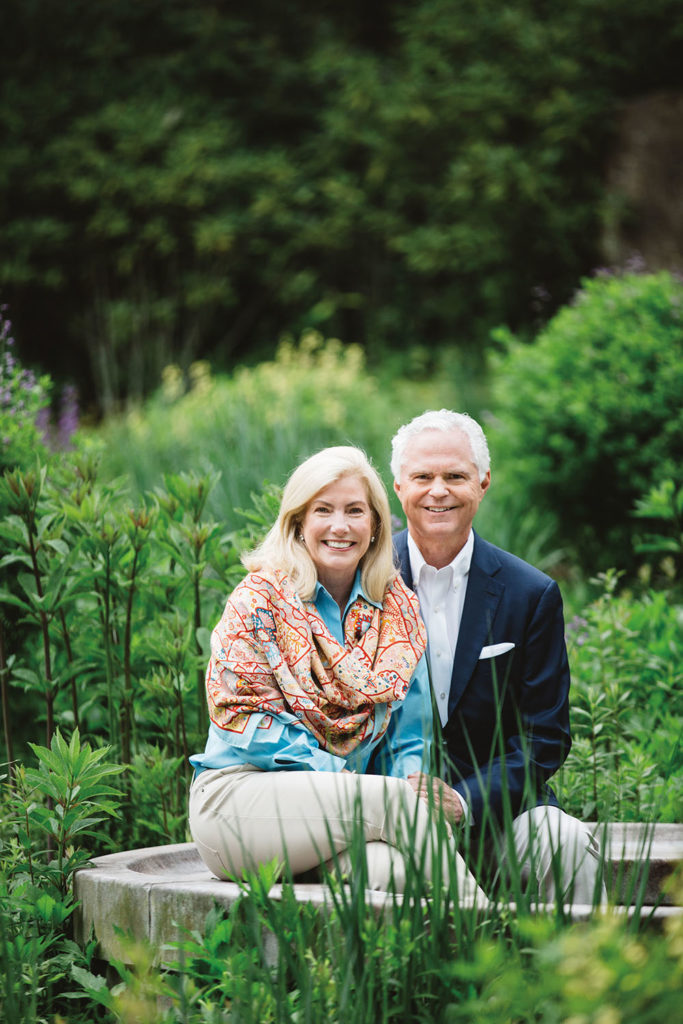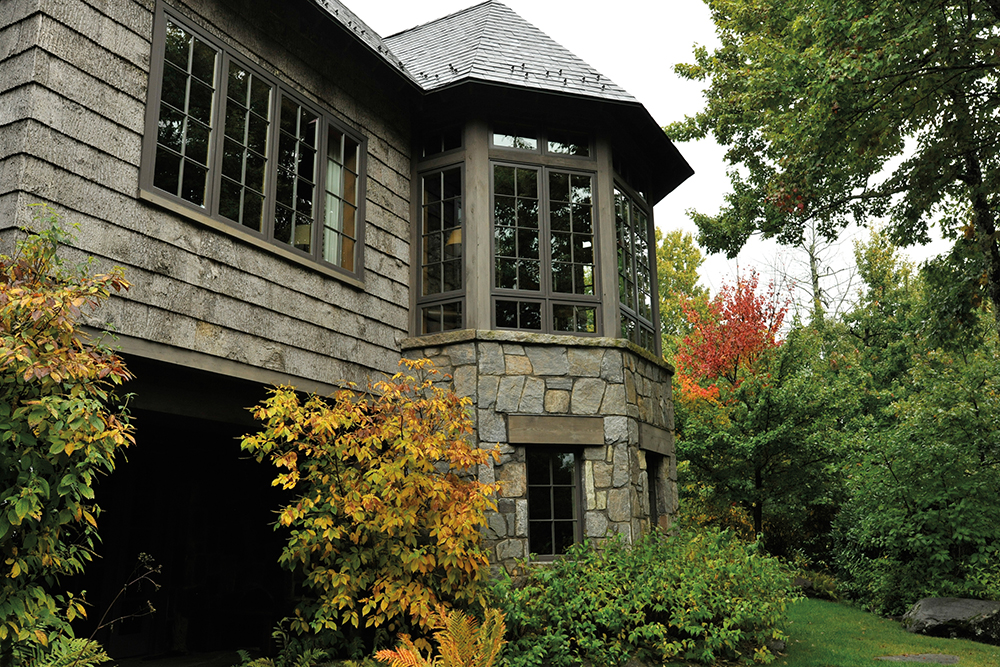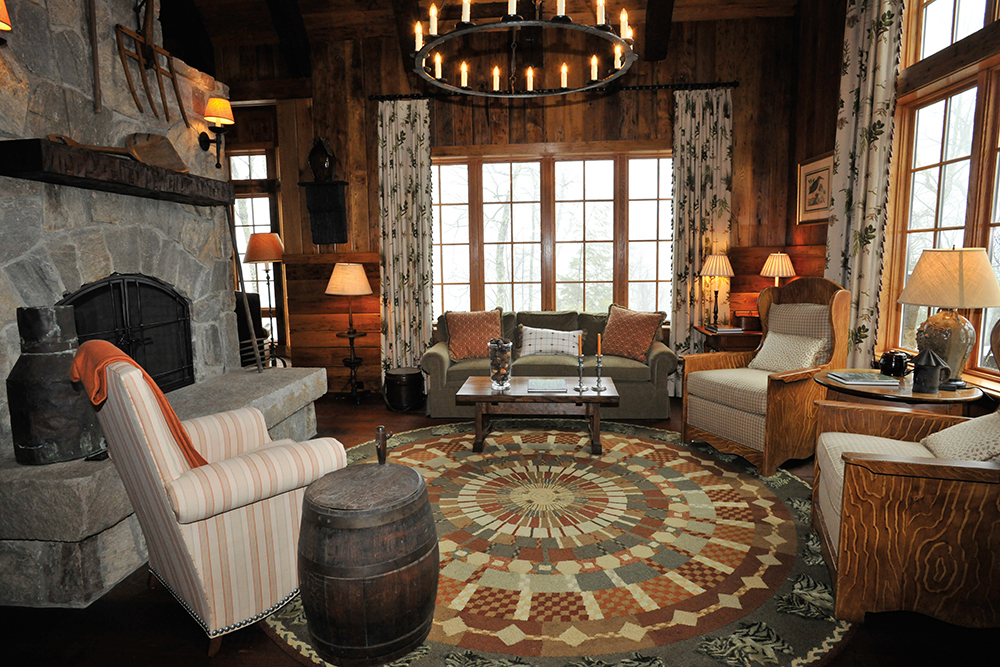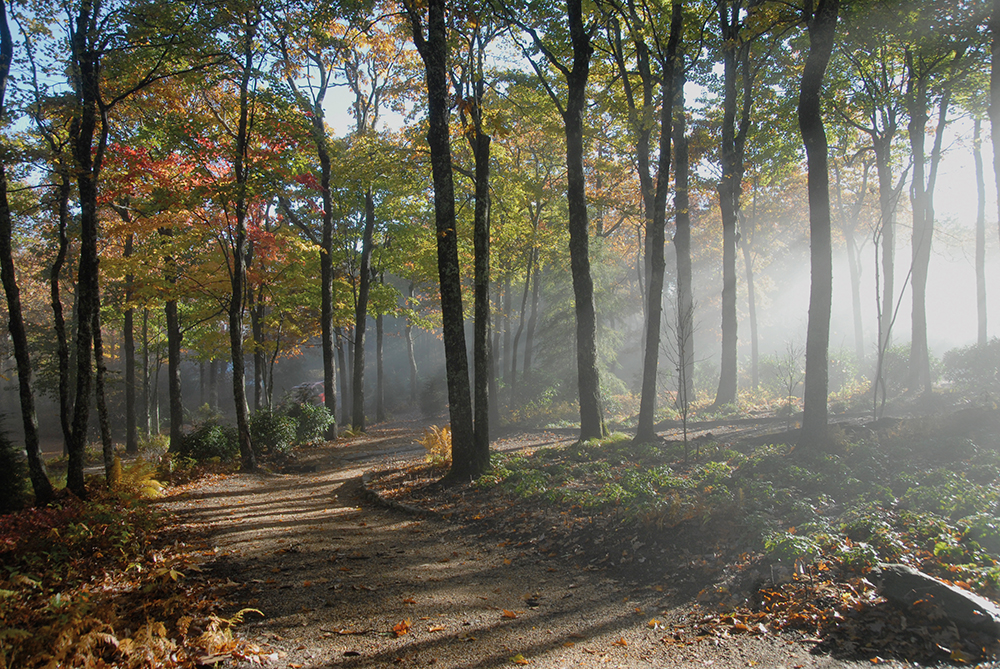Betty and Robert Balentine, Atlanta, Georgia (2017)

One hundred and fifty miles north of Atlanta sits the town of Lake Toxaway, North Carolina, nestled atop the Appalachian’s storied Blue Ridge Mountains. With its mild climate and natural beauty, the region, which also includes the towns of Highlands, Cashiers, and Brevard, has been a retreat for city dwellers since the late nineteenth century. Old timers have a saying that this is where spring comes and spends the summer. With an elevation of more than 4,000 feet, Lake Toxaway residents have a unique view of the lake and the surrounding mountains, whose names—Ravenrock, Panthertail, Hogback, and Hawk—evoke images of nature at its wildest.
At the peak of Toxaway Mountain is a hidden gem: Southern Highlands Reserve, a 120-acre native plant arboretum and research center dedicated to sustaining the natural ecosystems of the Blue Ridge Mountains. It is situated on the eastern continental divide adjacent to Panthertown Wilderness, a 7,000-acre forest often referred to as the Yosemite of the East. The Reserve is also home to the second most endangered ecosystem in the United States, the spruce-fir forests, and to Betty and Robert Balentine, stewards of this unique property for more than two decades.
In the late 1990s, worried that their three children were coming down with “nature deficit disorder,” Betty and Robert did what many Atlantans did—escape to the mountains. At the vacation home they built on Toxaway Mountain, the Balentines began to immerse the family in the limitless, exciting mysteries of mountain nature. The woods of the Blue Ridge host tens of thousands of animal, plant, insect, and microbe species, many of which are rare, and some unique. To the children, the woods were a fairy-tale forest. No scientific term could more deftly express that impression.

Rapidly, the family’s passion for the natural world began to affect their city way of life, and weekends and holidays were increasingly spent on the mountain. Their love for the area evolved into a passion to protect. As Robert and Betty added adjacent property to their initial tract of land over the years, they protected it through a conservation easement, held by North American Land Trust, to ensure no further development.
In 2002, the Balentines took things one step further. They established the Southern Highlands Reserve Foundation, a 501(c)(3) private operating foundation, with a mission of sustaining rare ecosystems through the preservation, cultivation, and display of plants native to the region, and advocating for their value through education, restoration, and research. Subsequently, they engaged the noted American landscape architect W. Gary Smith to create a master plan for the core of the property. Patterns in the native landscape provided inspiration for Smith’s design of the area. Over a six-year period, buildings were constructed, plantings were installed, and paths were laid. Enormous boulders were transported up the mountain and placed throughout the landscape. Today the 20-acre display garden is surrounded by a 100-acre natural woodland managed to maintain wildlife habitat and ecological connectivity between the two areas.

By all accounts, this progression into conservationism has been a natural one. Robert’s love of the natural world developed at an early age, guided by his father, a rosarian, and his mother, a horticultural competition judge. Years spent hiking and camping as an Eagle Scout in the mountains of North Carolina instilled in him a tremendous respect and love for the outdoors. Robert is also active in many cultural pursuits. Formerly the chairman of the Atlanta Symphony Orchestra, he is also a founder of the Southeastern Horticultural Society, and today he serves on the board of the Garden Conservancy.
Betty is past president of the Peachtree Garden Club and a longtime board member of the State Botanical Garden of Georgia. Over the years, she has accumulated vast knowledge of wildflowers and is passionate about the need to protect them. Through her work as a member of the University of Georgia Press Advisory Council, Betty also advocates for publishing books on the natural world. The family’s passion for protection and preservation extends to their Atlanta home as well. This spring, the Southeast Chapter of the Institute of Classical Architecture & Art awarded the Balentines the coveted Shutze Award for the multiyear restoration of their 1920s Neel Reid home.

As Southern Highlands Reserve prepares to celebrate its fifteenth anniversary later this year, it is clear that the organization is on the right track. Under the leadership of the Balentines and executive director Kelly Holdbrooks, the Reserve has established several meaningful partnerships to fulfill its mission. One of the largest programs is the Southern Appalachian Spruce Restoration Initiative, in which the Reserve is working with federal and state agencies to grow one hundred thousand red spruce seedlings to propagate this endangered species. As part of its commitment to education, the site hosts an annual symposium featuring nationally recognized native plant experts. Its Visitors’ Days each Tuesday from April through October and group tours have introduced thousands of gardening enthusiasts to this slice of heaven atop Toxaway Mountain.
As these visitors will attest, there is a spiritual feeling on the land on top of the mountain. Occasionally, when the wind blows across the gulfs of mountain you can catch the sharp perfume of fir and spruce. For the Balentine family, this place speaks on many different levels—overwhelming natural beauty, thoughtful design, noble purpose. But it is more. There are not many wild places left in the world, and this family knows the importance of protecting and preserving Southern Highlands Reserve, for it plays a unique and vital role in the ecological health and integrity of our planet.
—Marian W. Hill serves on the Dean’s Advisory Council, University of Georgia College of Environment & Design, and the University of Georgia Press Advisory Council. She is a former president of The Garden Club of America.